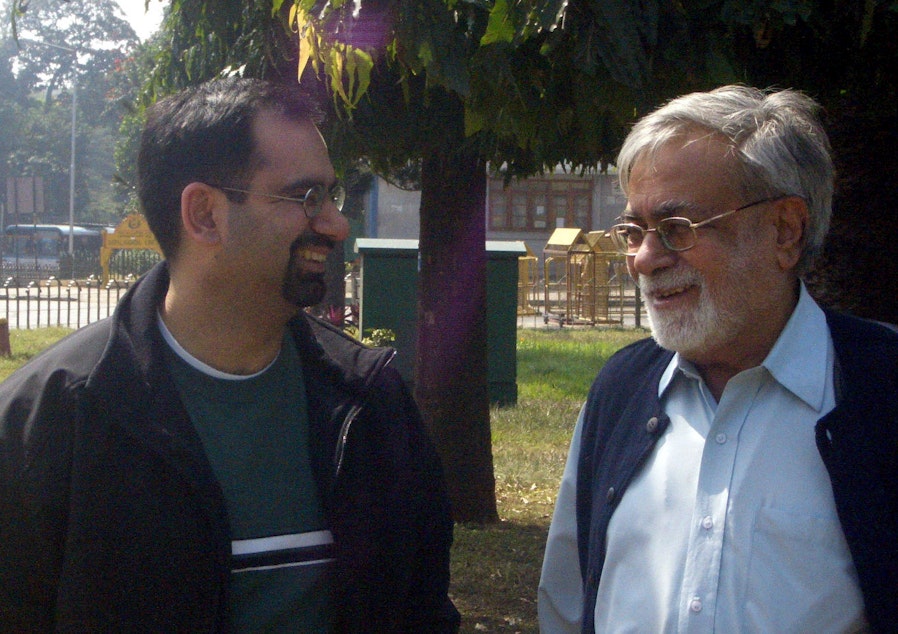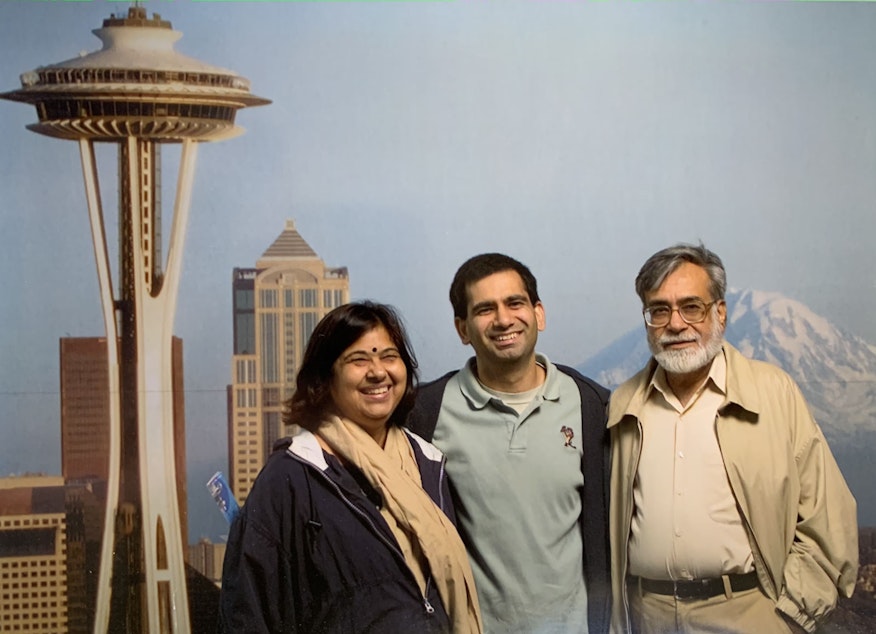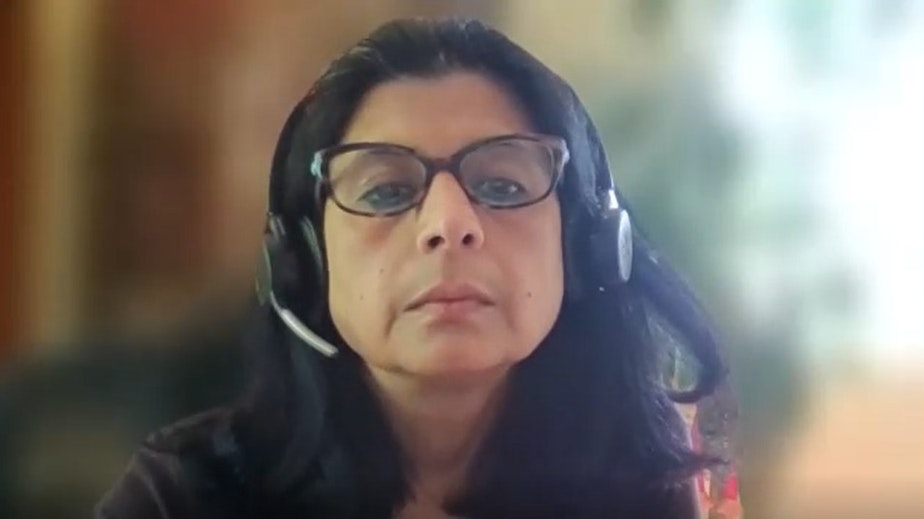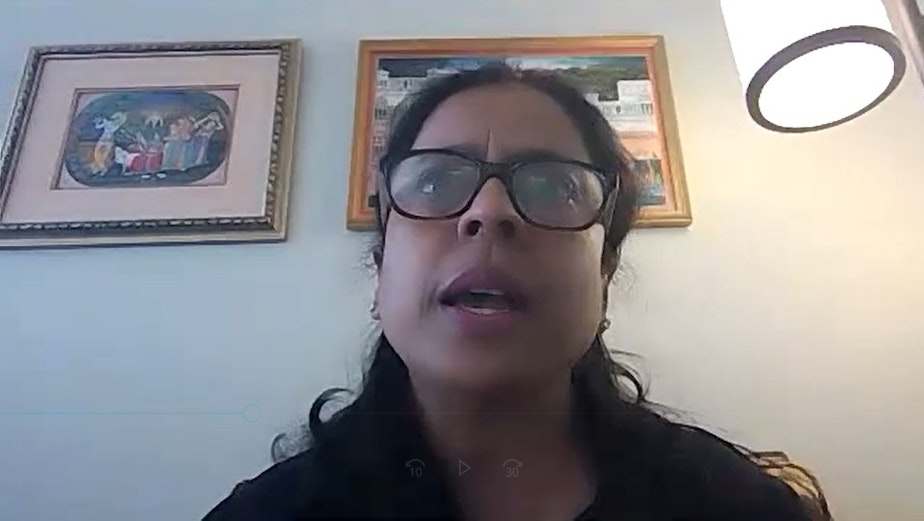As India suffers, diaspora looks for ways to help from the NW

In India, five million Covid cases have been reported in the month of April alone.
There’s nothing harder than watching a family member struggle with illness — or even die — while you’re thousands of miles away. That’s what’s happening to many of the estimated 75,000 Indian Americans who live in the greater Seattle-Bellevue area.
Agastya Kohli lives in Kirkland. He’s a tech worker, but he’s better known as the son of a towering literary figure in India named Narendra Kohli. So when Agastya's father died of Covid earlier this month, it hurt on many different levels.
“He was a giant," Agastya said. "The loss is both personal — a father to me, a grandfather to my nephews, a husband to my mother — but a lot of his admirers and readers are also mourning his passing. It is a great loss to Indian literature, to Indian culture."
Even India’s Prime Minister Narendra Modi tweeted his condolences.

Agastya discussed with his mother whether he should travel to India. They decided he should stay away, for safety reasons.
Sponsored
And so, he began looking for other ways to help. That’s when he realized that despite his father’s prominence, there was no memorial service planned.
“The reality of it is, there is no gathering happening in India right now," he said. "It’s not like neighbors are able to come over and sit with the family. In fact, the family itself, all the family members are quarantining from each other, wearing masks inside the house.”
While he may have been half a world away, Agastya stepped in. He put together a prayer service featuring Seattle-Bellevue area musicians for his father and streamed it online last week.
You can listen to it in the video below. A singer from Sammamish named Gauruv Chunda started things off.
Sponsored
Agastya’s experience echoes that of many Indian Americans today in this region.
Watching from afar
Meenakshi Rishi teaches economics at Seattle University. She said the government in India underestimated the scale of the problem.
“Public health, for example, is completely collapsing right now," she said. "This was the nightmare scenario that everybody had been talking about, and then, come January, every Indian was under a cloud of hubris, thinking that they’d dodged the bullet.”
Sponsored
But they hadn’t, Rishi said, so that now, so many people have Covid that the social safety net in India is collapsing, too.

“My parents cannot get out of their house because their neighbors have Covid," Rishi said. "They cannot bring a maid into the house because she has Covid. My father is 93. My mother is 88. I wonder who is going to feed these people.”
That’s a problem Lalita Uppala, Executive Director of the India Association of Western Washington, has been working on.
“People can’t step out of their house," Uppala said. "I have six sisters. Every sister has Covid in their family. Every family member has situations going on. They cannot even think of delivering food to another sister. So how are they going to help each other there?”
Sponsored
Uppala said some of the problems hurting India right now have technical solutions. So she’s been corraling technical expertise from our region to help.

Sponsored
“I constantly hear what a technically savvy community we are, and there were often times when I was frustrated about it,” because the Indian American population here has many vulnerable members, too, who may not be tech workers, Uppala said.
“But this is one time I’m really grateful for the tech savvy sector of our community."
Her volunteers are building a support network linking together small mutual aid groups springing up across India, with people in need and with donors. Her volunteers have vetted different groups and published their findings in a crowdsourced Google doc.
In this way, local volunteers have helped in India where larger non-profit aid groups like the Red Cross have failed.
“These are individuals who are putting in, after they finish their work for the day, or while they are doing their work for the day, they are doing this also,” Uppala said.
Different parts of India have different champions.
Santosh Pillai’s family comes from the southern state of Kerala. He works for Microsoft in the Seattle area.
In conversations with colleagues at work, and on social media, he’s using data to tell the story of what’s happening in India. He’s fighting misinformation.
“I’m sending the message to the numerous health workers and volunteers, that you are not alone.” said Pillai. There are people in the US who want to help, he said. “Mentally it is very rewarding to be part of the fight against the pandemic, even when sitting so far away from Ground Zero.”
Across the US, Indian-Americans are giving their time and their money to the cause. It’s not the same as being there. But it’s still important.
ADDITIONAL RESOURCES:
Crowdsourced and crowd-vetted list of charitable organizations mentioned by Lalita Uppala of the India Association of Western Washington.
This story was updated to include additional voices and resources when the story ran on NPR's Here and Now.

